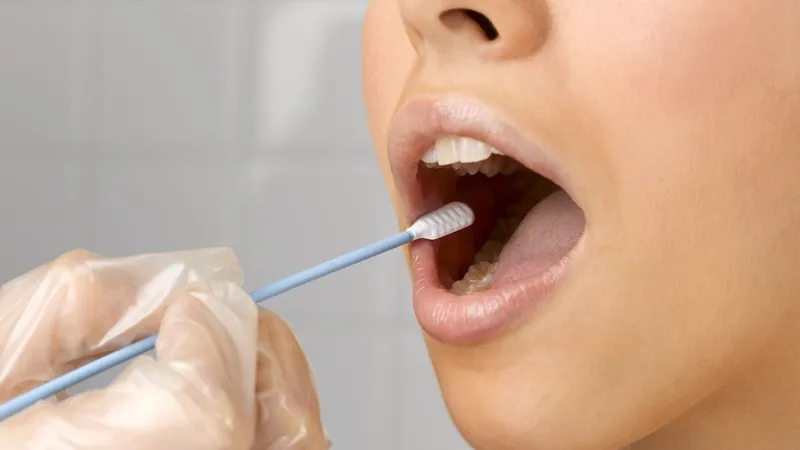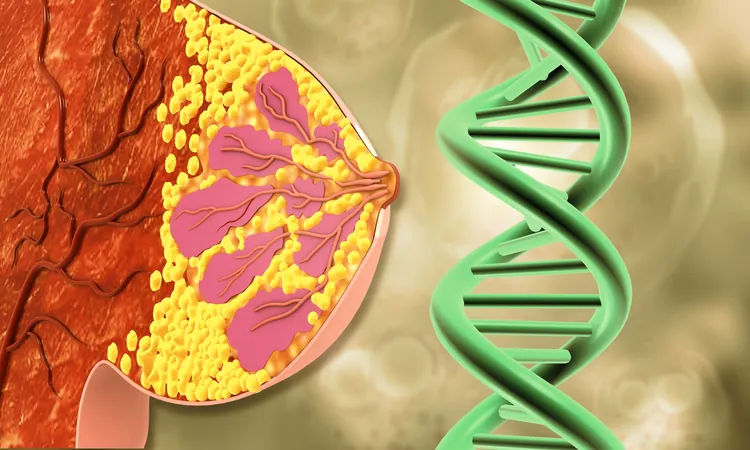
Revolutionary Cheek Test Predicts Your Risk of Dying in the Next Year — Could This Change Medicine Forever?
2024-10-08
Author: Jia
Revolutionary Cheek Test Predicts Your Risk of Dying in the Next Year — Could This Change Medicine Forever?
In a groundbreaking study, researchers have unveiled a new test that analyzes cells from your cheek to predict your risk of dying within just twelve months. The research, published on October 1 in the journal *Frontiers in Aging*, highlights the effectiveness of a tool known as CheekAge, which promises to be a game changer in assessing mortality risk.
Conducted on a cohort of adults aged 69 to 101, the study clearly demonstrated that a higher CheekAge score was associated with significantly increased mortality risk. Specifically, for every increase in the CheekAge score, there was a startling 21% boost in the likelihood of death within the following year. This astonishing correlation sheds light on the profound implications of biological aging as a health determinant, as noted by experts in the field.
CheekAge operates as an epigenetic clock, an innovative device that evaluates biological age by analyzing the methylation patterns on a person's DNA. "Biological age can provide much deeper insight into an individual's health than their chronological age," remarked David Furman, an associate professor at the Buck Institute for Research on Aging, who did not participate in the study. This distinction highlights the potential for biological markers to guide personal health assessments more accurately than mere birthdates.
The Science Behind CheekAge: What You Need to Know
This new approach uses "buccal" samples—essentially cheek swabs—to gauge a person's life expectancy based on epigenetic data, which reflects how genes express themselves over time. The investigation was impressively thorough, utilizing samples from various age groups and correlating findings against health indicators like stress levels and body mass index (BMI).
The researchers honed in on a rich dataset from the Lothian Birth Cohorts, which boasts over 15,000 participants. This long-running project has meticulously tracked aging changes across decades, enabling researchers to align DNA methylation patterns with mortality statistics.
In an impressive twist, the researchers found that CheekAge also correlated well with blood samples, suggesting that the health indicators it captures may span across multiple tissue types. This discovery could mean that the test is tapping into universal health signals, giving it a broader application than initially expected.
However, it’s important to note that while CheekAge shows promise, it is still not equipped to accurately determine who will live or die in a definitive sense. Instead, it offers insights into increased or decreased mortality risks, thus opening the door for future research to explore connections to other age-related diseases.
Looking Ahead: The Future of Biological Aging Research
The ultimate hope surrounding tools like CheekAge is to identify ways to slow down or alter biological aging. Experts like Steve Horvath from UCLA stress that the development of epigenetic clocks could pave the way for targeted interventions that influence aging mechanisms. However, as it stands, the tools need more time and research to provide actionable insights.
Currently, CheekAge is not available for public purchase, but the development team has launched a related product, the TallyAge Test, which is on the market. Despite its potential, experts caution consumers against interpreting these results without professional guidance, as the landscape of epigenetic testing is still evolving.
“We’re at the dawn of understanding how to modify our epigenetic profiles,” Furman explained, highlighting the need for caution and further scientific exploration. As more is learned, it could potentially revolutionize personal health assessments, leading us into a future where we have more control over our biological destinies.




 Brasil (PT)
Brasil (PT)
 Canada (EN)
Canada (EN)
 Chile (ES)
Chile (ES)
 España (ES)
España (ES)
 France (FR)
France (FR)
 Hong Kong (EN)
Hong Kong (EN)
 Italia (IT)
Italia (IT)
 日本 (JA)
日本 (JA)
 Magyarország (HU)
Magyarország (HU)
 Norge (NO)
Norge (NO)
 Polska (PL)
Polska (PL)
 Schweiz (DE)
Schweiz (DE)
 Singapore (EN)
Singapore (EN)
 Sverige (SV)
Sverige (SV)
 Suomi (FI)
Suomi (FI)
 Türkiye (TR)
Türkiye (TR)